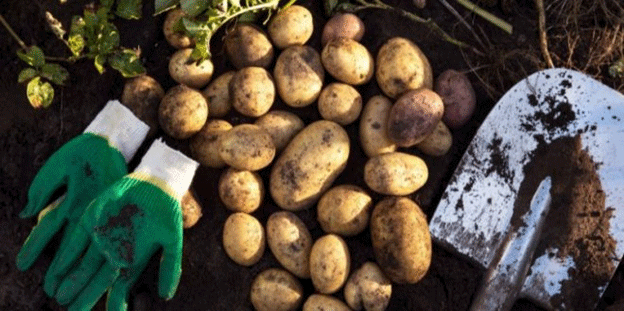Weather Challenges and Crop Delays in Northwest Europe
The fresh potato crop in northwest Europe, particularly in Belgium and the Netherlands, is facing significant delays due to persistent rainy weather that hindered plantings. These delays are expected to affect the supply chain and market conditions for the 2024-2025 marketing year, with implications for farmers, agronomists, and the broader agricultural industry.
Crop Progress and Market Impact
According to a statement by the North-Western European Potato Growers (NEPG) released on July 1, 2024, the hectarage for potato planting is estimated to have increased by 4-6%. However, the progress varies widely, with some fields only newly planted by the end of June—unusually late—while others are already in full flowering and nearing harvest.
This variation in crop progress is reflected in market conditions. The Expana benchmark price (EBP) for Dutch processing potatoes has reached an all-time high of EUR625/MT, a 7.76% increase year over year. The limited availability of free buying processing materials is a direct consequence of the highly wet and delayed 2023 harvest, which compromised the quality and supply of potatoes across Europe.
Yield Adjustments and Disease Concerns
In June, the EU Commission revised its 2024 harvest yield estimate to 35.8 tonnes per hectare, which is 3% lower than the May figure, though still 1% higher than the five-year average. This adjustment follows significant yield reductions in Belgium and the Netherlands, down 10% and 6%, respectively, from the May forecast. The MARS report highlighted issues such as waterlogged soils and the presence of Phytophthora infestans, the pathogen responsible for late blight, as critical factors affecting final crop yields.
Market Dynamics and Future Risks
While demand for frozen chips and other processed potato goods is stabilizing or decreasing, there is a notable increase in demand for fresh potatoes within the NEPG zone, particularly in France. However, the region faces growing competition from international markets, including China, India, Argentina, Turkey, and North America.
Mintec representatives pointed out that the increasing volatility of weather patterns is amplifying the risks associated with potato farming. Unpredictable weather conditions are making it more challenging for growers to plan and execute their planting and harvesting schedules effectively.
The delayed fresh potato crop in Belgium and the Netherlands underscores the broader challenges faced by the agricultural sector due to volatile weather conditions. With fluctuating market demands and international competition, farmers and industry stakeholders must remain adaptive and resilient. Advanced planning, disease management, and innovative farming practices will be crucial in navigating these uncertainties and ensuring a stable supply of high-quality potatoes.







